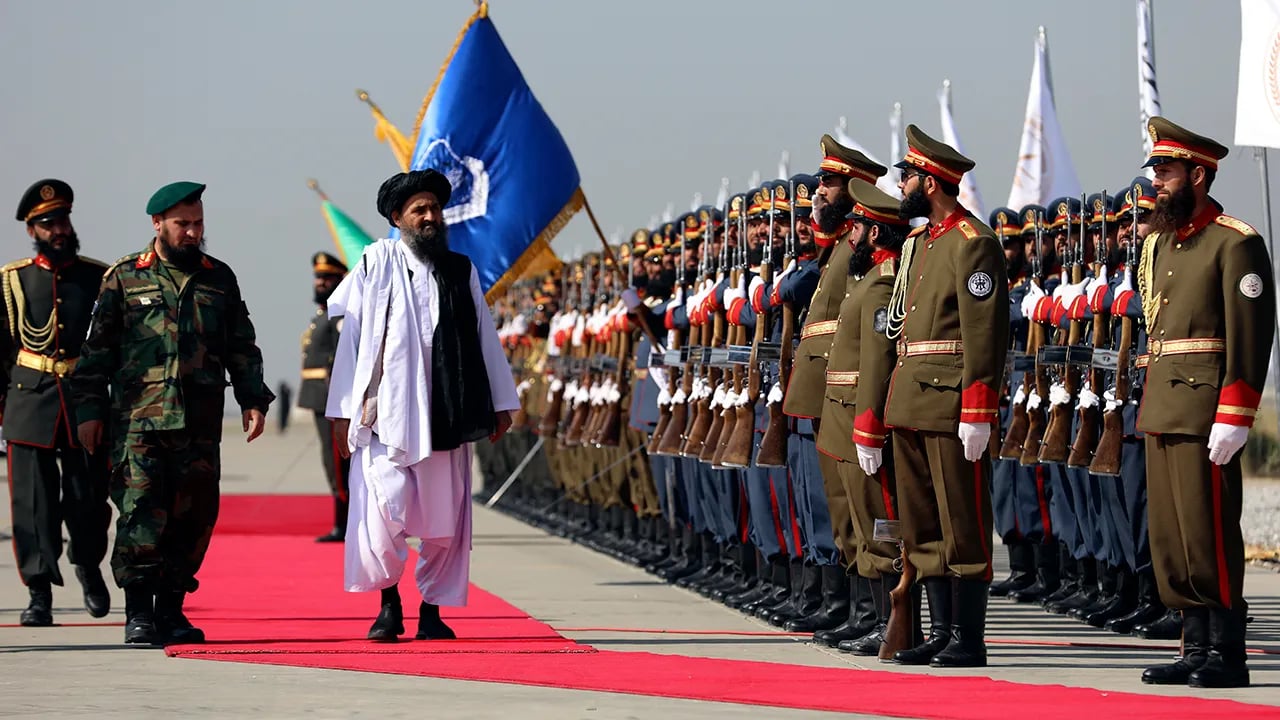India strengthens diplomatic ties with the Taliban amidst Pakistan's declining influence in Afghanistan.
The evolving relationship between India and the Taliban, amidst strained Afghanistan-Pakistan relations, may alter the regional landscape.

Last week, in Dubai, India's foreign secretary, Vikram Misri, met with acting Afghanistan Foreign Minister Amir Khan Muttaqi, strengthening bilateral relations.
Since the Taliban took over Afghanistan in 2021, India has been gradually increasing its engagement with the group. This latest meeting, however, represents the highest-level talks since the Islamic group's takeover. Notably, this was the second meeting between officials from New Delhi and Kabul in just two months, indicating both countries' readiness to step up diplomatic engagement.
According to Michael Kugelman, director of the South Asia Institute at the Wilson Center, India's increased engagement with the Taliban is not solely due to Pakistan's tensions with the group. In fact, New Delhi had already begun taking small steps towards Taliban engagement shortly after the Taliban's return to power, before tensions arose between the two countries.

While the Afghan foreign minister viewed India as a crucial and economically substantial nation in the region, Misri highlighted the "enduring bond" and "intense interpersonal exchanges" between the two countries during the talks.
The talks between India and the other country focused on enhancing their bilateral relations, addressing security concerns, engaging in development projects, and increasing humanitarian assistance, as stated by India's Ministry of External Affairs.
India is one of several nations actively supporting trade, aid, and medical care to Afghanistan under the Taliban government. Additionally, the country, which houses numerous Afghan refugees, has committed to providing "material assistance" for their reintegration into Afghanistan.
According to Kugelman, New Delhi's engagement with the Taliban is motivated by the belief that closer ties can help India achieve its security and strategic objectives in Afghanistan, such as enhancing trade and connectivity links and safeguarding against terrorist threats on Afghan soil.
The talks also addressed the possibility of increasing trade through the Chabahar Port in Iran's Sistan-Baluchestan province. India has been working on developing the port to allow goods to bypass ports in Pakistan, which is a rival. This port, situated near the border with Pakistan, could offer landlocked Afghanistan an alternative route for receiving and sending goods, bypassing Pakistan.

The meeting between India and the Taliban could destabilize Pakistan, which shares borders with both countries. India and Pakistan have a long history of conflict, having fought three wars over Kashmir since their independence in 1947. Additionally, the meeting takes place amidst deteriorating relations between the Taliban regime and Pakistan, once close allies, as cross-border violence intensifies.
The talks took place shortly after India strongly condemned Pakistani airstrikes in Afghanistan in December. These airstrikes resulted in the deaths of many civilians, including women and children. Pakistani officials stated that the strikes targeted militants of the Pakistani Taliban. Islamabad often accuses the Pakistani Taliban of using Afghan territory to launch attacks in Pakistan, a claim that Kabul denies.

India has reopened its embassy in Kabul despite not officially recognizing the Taliban administration since it came to power in 2021. The Taliban appointed an acting consul in the Afghan consulate in Bombay in November, and India's joint secretary of the Ministry of External Affairs visited Kabul the same month.
"Pakistan is facing a major challenge as its rival India may fill the vacuum left by its distancing from the Taliban, according to Kugelman. This development is bad news for Pakistan all around."
Besides the deterioration of Pakistani relations, other factors may have contributed to India strengthening its relationship with Afghanistan. The diminished influence of Iran, due to conflicts in the Middle East and internal issues, has reduced its control over the Taliban. Meanwhile, Russia, one of India's closest allies, is moving towards recognizing the Taliban government in Afghanistan and calling the group a partner in combating terrorism. Russia perceives a significant security threat from Islamist militant groups across countries from Afghanistan to the Middle East, especially after losing Bashar al-Assad in Syria.

Beijing is strengthening its ties with the Taliban, which is making India cautious about China's growing power. Furthermore, India's stance may be impacted by the upcoming return of President-elect Trump to the White House. The Trump administration previously facilitated the U.S.-Afghanistan withdrawal agreement. The possibility of Trump's re-election introducing new dynamics to the region has prompted India to protect its long-term interests.
Since the United States withdrew from war-torn Afghanistan, it has severed diplomatic ties with Kabul. However, nations in the region are now assessing the impact of the new Trump administration on the Taliban. Washington maintains a policy of sanctions and isolation toward Taliban leaders.
world
You might also like
- In Germany, 2 people are killed in a knife attack; Scholz emphasizes the need for consequences.
- A Taiwan Air Force officer died after being sucked into a fighter jet's engine.
- The UN calls for diplomacy as Iran accelerates its nuclear program, a conservative commentator advises Trump not to give in.
- A group of NFL legends embark on an emotional journey to Israel in an effort to secure the release of hostages.
- Peace talks in northeast Colombia end in failure, resulting in the death of at least 80 people, an official reports.



















